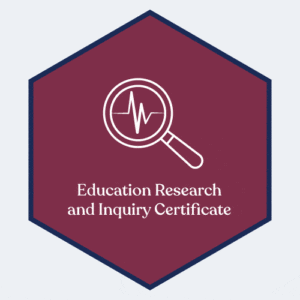Embedding a culture of research in school to engage staff and empower organisational change
Written by: Graham Chisnell

7 min read
GRAHAM CHISNELL FCCT, EDUCATION CONSULTANT AND AUTHOR, UK
Developing a culture of research in school empowers staff at every level to influence practice and play an active role in the strategic development of the organisation. Research can enhance the climate of a school in four ways. Relationships strengthen, the learning environment is enhanced, the quality of provision improves for students and the heart of the school beats stronger than ever before (Chisnell, 2021a). In this case study, I reflect on the impact of embedding a culture of research on student outcomes, staff engagement and organisational change.
What is research?
research: a detailed study of a subject, especially in order to discover (new) information or reach a (new) understanding
Cambridge Dictionary, 2013
Research can mean many things to different people. To a teacher studying for their masters degree, research can involve a complex set of strict protocols (Thomas, 2017). To a teacher in a busy school, resear
Join us or sign in now to view the rest of this page
You're viewing this site as a guest, which only allows you to view a limited amount of content.
To view this page and get access to all our resources, join the Chartered College of Teaching (it's free for trainee teachers and half price for ECTs) or log in if you're already a member.
- Cambridge Dictionary (2013) Cambridge Advanced Learner’s Dictionary, 4th ed. Cambridge: Cambridge University Press.
- Chartered College of Teaching (2020) Research engagement toolkits. Available at: https://my.chartered.college/content_type/toolkit (accessed April 2024).
- Chisnell G (2021a) Irresistible Learning: Embedding a Culture of Research in Schools. Woodbridge: John Catt Educational.
- Chisnell G (2021b) Talent pathways – building a culture of career development in schools. Impact 11: 33–36.
- Cooperrider DL, Sorenson P and Whitney D (2001) Appreciative Inquiry: An Emerging Direction for Organization Development. Champaign, IL: Stipes Publishing.
- Kahneman D (2011) Thinking, Fast and Slow. New York: Farrar, Straus and Giroux.
- McAleavy T (2016) Teaching as a Research-Engaged Profession: Problems and Possibilities. Reading: Education Development Trust.
- Norton M (2022) A reflection on how and why we changed our Key Stage 1 learning environments. Impact 15: 44–45.
- Thomas G (2017) How to Do Your Research Project: A Guide for Students. London: SAGE Publications.
- Whitmore J (2017) Coaching for Performance: The Principles and Practice of Coaching and Leadership. London: Nicholas Brealey.
0
0
votes
Please Rate this content
Please login to comment
0 Comments
Oldest
Newest
Most Voted
Inline Feedbacks
View all comments











